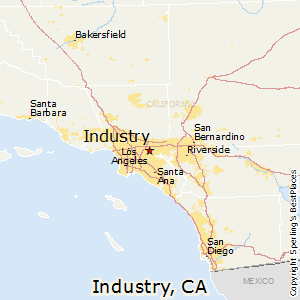 Volatile Organic Compounds (VOCs) are chemicals released during use of cleaning solvents or other substances. Solutions may be found in working environments where paint stripping, metal degreasing or spot treatment is performed. These solutions have gone through many changes due to Environmental Protection Agency or EPA recognition of significant negative impacts on humans and the environment. Traditional solvents emitted hazardous vapors into the air during their evaporation process. These were bad for the atmosphere and were found to cause health problems when inhaled or absorbed through the skin. Companies begin creating organic substitutes to eliminate hazardous air pollutants. These products introduced a new concern called low volatile compounds. Their release does not affect the atmosphere but does still cause medical side effects when exposure is high. Businesses can better protect themselves when a solution with low VOCs is substituted. Many products provide the same cleaning power and benefits. They are safer to use in any industrial environment.
Volatile Organic Compounds (VOCs) are chemicals released during use of cleaning solvents or other substances. Solutions may be found in working environments where paint stripping, metal degreasing or spot treatment is performed. These solutions have gone through many changes due to Environmental Protection Agency or EPA recognition of significant negative impacts on humans and the environment. Traditional solvents emitted hazardous vapors into the air during their evaporation process. These were bad for the atmosphere and were found to cause health problems when inhaled or absorbed through the skin. Companies begin creating organic substitutes to eliminate hazardous air pollutants. These products introduced a new concern called low volatile compounds. Their release does not affect the atmosphere but does still cause medical side effects when exposure is high. Businesses can better protect themselves when a solution with low VOCs is substituted. Many products provide the same cleaning power and benefits. They are safer to use in any industrial environment.
Industrial Solvent: Debunking Common Manufacturing Engineer Salary Rolls Royce Beliefs about Going Organic
The production of traditional industrial solvents has slowed due to the possible health effects and legal liabilities. Organic alternatives make their use less desirable in most industries today. Even the military has eliminated their presence for most processes. Chemical waste from these substances can contaminate water and soil within the Industrial Engineer Inventions immediate area. These contaminations have been linked to public health problems. Organic alternatives may be biodegradable, produce less waste, and are typically only dangerous if VOC count is high. Previous environmental issues are eliminated with organic solvents. They also greatly reduce the health risks posed to people using them.
Making the switch to a safer industrial solvent is not always easy for industrial industries. They tend to stick with what they have because of their supplier relationships, performance history, and the common belief these substances do the job better. If a business has worked with a specific supplier for years, they are most likely receiving pricing deals. Switching to an unknown supplier is scary because these businesses do not know what to expect. Traditional solvents have a history for reliability. This puts the dependability of organic solvents in question to most businesses. Companies also believe traditional degreasers as more effective. They think these substances kill more germs and remove grease easier.
Organic solvents with low VOCs are just as cost effective and reliable. Cleaning product manufacturers offer substitutes that are not only safer but perform equally if not better than the more traditional solvents. A company that makes this switch voluntarily can avoid the mandatory changes continually put into effect by the EPA. Many harsh chemicals continue to be outlawed in the industry due to their dangers. Organic agents reduce part corrosion, reserve part quality, and are less toxic. Companies continuing the use of traditional agents should consider these benefits. While it is always good to keep up supplier relations, many businesses are missing out on improved products with multiple benefits. Considering what can be implemented as a substitute to harmful chemicals used in every day processes could be very valuable to any business.
